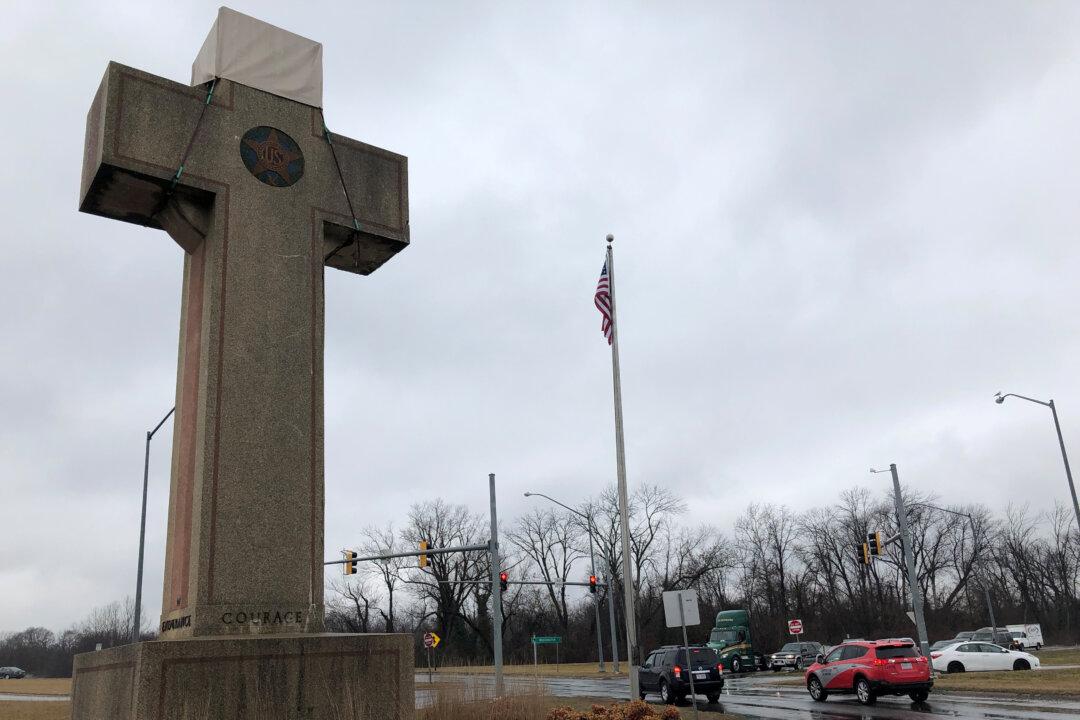WASHINGTON—A war memorial that is a towering 40-foot-high Latin cross must be relocated from public land in suburban Washington because its prominence implies government endorsement of Christianity, an atheist group told the Supreme Court in oral arguments on Feb. 27.
The case pitted the American Humanist Association against the American Legion and the Maryland-National Capital Park and Planning Commission, which owns the small plot of land in the center of a busy three-way junction in Veterans Memorial Park in Bladensburg, Maryland.





